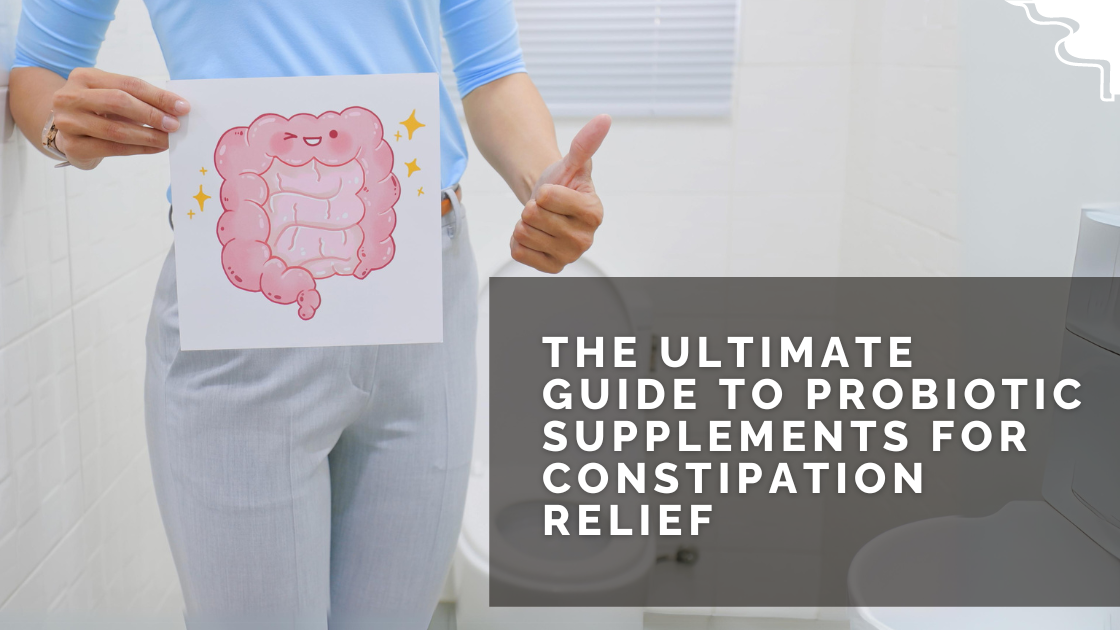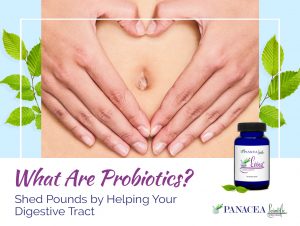
Is It Good to Take Probiotics Everyday?
If you’ve been considering using probiotics to improve your gut health and immune system, you may have questions such as, “Should I take my probiotic

While it’s not always fun to talk about, constipation is a bothersome condition that affects almost everyone at some point in their life. From eating high-fiber foods to taking laxatives, there are many ways to resolve constipation. In this guide, we’re taking a closer look at probiotics for constipation relief.
Probiotics are a great solution for a sluggish digestive system because they increase the good bacteria in your gut. Things like pregnancy and irritable bowel syndrome can throw off the delicate bacterial balance in your gut microbiome. This can cause a flurry of digestive issues, including constipation. Restoring balance to the bacteria in your gut by taking probiotic supplements can make a world of difference.
If you’re new to probiotics, it may seem confusing and intimidating. Probiotic supplements contain a blend of different bacteria strains, which all work together to facilitate healthy digestion. The following are some of the bacteria included in probiotic capsules for constipation:
Lactobacillus acidophilus is one of the most significant bacteria in the digestive tract. This bacteria thrives throughout the digestive system, and its presence aids in the formation of stool. If your gut is lacking in good bacteria, supplementing with a lactobacillus acidophilus probiotic can help.
Along with acidophilus, lactobacillus rhamnosus is another bacteria residing in the gut in large numbers. There are five different strains of this bacteria, all of which have been linked to smooth digestion. One study showed that these five strains can be used in people suffering from constipation as well as symptoms of irritable bowel syndrome.
Bifidobacterium lactis is a probiotic that contains multiple types of good bacteria. This bacteria works together to produce lactic and acetic acid, in turn breaking down any fiber you consume. Proper breakdown and absorption of fiber help build soft, bulky stools that pass through the digestive tract more easily.
Bifidobacterium longum is another probiotic shown to reduce symptoms of constipation. This probiotic increases the production of short-chain fatty acids within the gastrointestinal tract. These fatty acids then work to stimulate bowel movements and soften hardened stool.
If you’ve never used probiotics for your constipation, you may be wondering what they’re like. Every probiotic supplement is different, so following directions is essential. For example, the suggested dose for adults taking our all-natural Evvea probiotic supplement is two capsules daily with Breakfast. For constipation relief, be sure to consult your Healthcare Professional on the daily dosage right for you.
To keep your digestive system healthy and ward off continuing constipation, you can make probiotics a part of your ongoing supplement routine. You may increase the benefits by adding foods and drinks that are high in probiotics to your diet, such as yogurt kombucha. Increasing water intake also keeps things moving smoothly through your gastrointestinal tract.
Whether you struggle with chronic constipation or occasional bouts of bowel sluggishness, probiotics could be the answer to your digestive woes. If you’re interested in using all-natural probiotic supplements to relieve your constipation, visit Panacea Scientific for more information.

If you’ve been considering using probiotics to improve your gut health and immune system, you may have questions such as, “Should I take my probiotic

What are Probiotics? Probiotics are the good bacteria that already live in your intestinal tract. You may not realize it, but there are more beneficial

You’ve heard about the science on gut health and just how important it is. It affects so many of the body’s systems! To stay in

Payment types accepted:
Visa/MC/Discover/ American Express
© Copyright Panacea Scientific 2020. All rights reserved. | Website by Infinite Web Designs